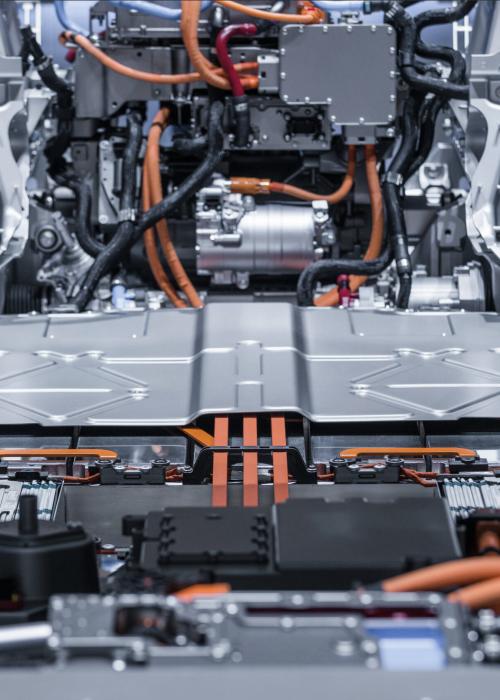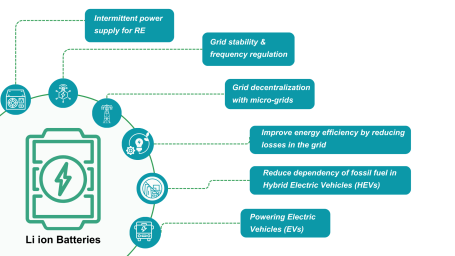
Developing a Circular and Sustainable Battery Value Chain in India
India’s clean energy transition is being driven by renewable energy expansion and the growing adoption of electric vehicles (EVs), which has led to an increasing reliance on lithium-ion batteries (LIBs). Between 2021 and 2030, India’s cumulative LIB demand is expected to grow from 22-gigawatt hours (GWh) to over 600 GWh. As the demand for LIB rises, building a robust, circular battery economy becomes critical for long-term energy security, reduced import dependency, and environmental sustainability.

The Role of Batteries in Low Carbon Transition
At WRI India, our work on battery circularity is anchored in the belief that sustainable energy transitions must be built on resilient, localized, and circular value chains. Our focus areas include:
Enhancing policies, regulations, and standards with data-driven, evidence-based solutions to promote circularity throughout the battery value chain. Our support includes developing actionable roadmaps, and mechanisms for waste collection, recycling, reuse, and material recovery.
Enabling a Resilient Battery Supply Chain by addressing critical gaps, particularly in raw material processing, second-life applications, and recycling infrastructure.
Advancing Technology, Innovation & Commercialization by promoting innovation, piloting circular economy business models, and enabling access to finance for startups and R&D institutions working on next-gen solutions.
Fostering Stakeholder Collaboration and Synergy through multi-stakeholder engagement through platforms like the Battery360 Alliance - a multi-stakeholder platform to highlight the opportunities and challenges of circularity in the nascent li-ion battery ecosystem, and to inform policymaking and enable scalable R&D solutions for optimizing battery circularity in the country.


